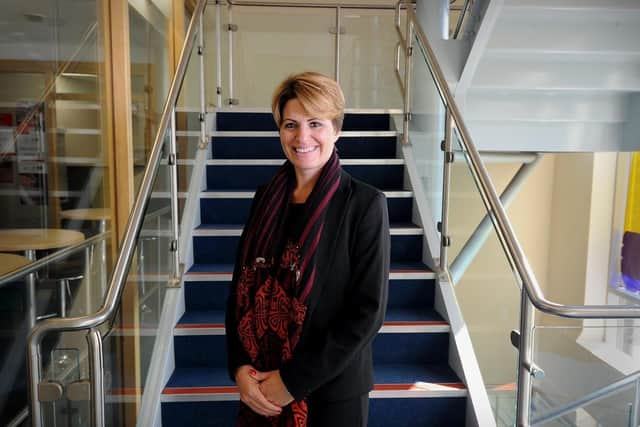How families left heavily in debt by pandemic deserve one-to-one support – Emma Hardy


Before Christmas, I obtained a Westminster Hall debate to raise this issue directly with the minister and ask for a halt to these poorly thought-out and damaging changes being rushed through.
A recent survey by the Joseph Roundtree Foundation has shown that the number of households currently behind on rent, bills or debt repayments has trebled since the pandemic hit, to nearly four million.
Advertisement
Hide AdAdvertisement
Hide AdThis number can only increase in the face of rising domestic fuel prices, the National Insurance hike in April, five per cent inflation and the effects of the £20 a week cut in Universal Credit. Inevitably, an increasing number of people are going to find themselves needing advice and support with debts, many for the first time.


Currently, that advice and support is provided through a network of local providers and national charities, such as Citizens Advice, funded through regional grants from the arms-length government agency, the Money and Pensions Service (MaPS). Despite the worsening economic pressures, MaPS are fundamentally changing the way funding is provided with a shift in emphasis to remote and online services.
This shake-up is taking place without any consultation with the organisations who provide the advice. It will lead to severe job losses amongst front-line debt advisors and a collapse in face-to-face advice which will affect the vulnerable and marginalised the most.
The reasons people find themselves in financial hardship are many and varied and can come with frightening speed. For many, face to face advice is the only way of providing the support they need. Debt can follow hard on the heels of bereavement, loss of employment or loss of health.
Advertisement
Hide AdAdvertisement
Hide AdIt is not uncommon that people in debt conceal their problem from their partner or family out of a sense of shame. They may be a victim of abuse and want to disclose this without the perpetrator’s knowledge. Sometimes by the time a person is seeking debt advice they have accumulated a lot of correspondence from creditors that they are afraid to open.


In such circumstances, the initial debt advice appointment is often an emotional experience and may be the first time they are speaking to anyone about wider, underlying, issues.
Debt is very often multi-faceted – it is a mistake to think of it as a financial puzzle that can be solved by someone following a flow-chart script on the end of a phone, or by those in debt choosing from a list of options on a website. Even during the height of the pandemic, demand for face-to-face debt advice remained steady at around a third of all consultations.
How has this situation arisen? Sadly, what emerges from the evidence is a picture of MaPS as an overly-bureaucratic organisation that believes it has all the answers.
Advertisement
Hide AdAdvertisement
Hide AdOne that is bull-dozing ahead with plans arrived at with no outside consultation and which contradict its own evidence.
In its latest reply to questions from the Treasury Committee, on which I serve, MaPS could not explain why it has made the funding decisions it has, or what the consequences will be for people needing the most help. By its own admission there will be £3m less funding for face-to-face advice next year.
In his reply at the debate, the minister told me he would “feed back” these concerns to MaPs’ officials. However, I fear he does not grasp the severity of the situation. The problems go beyond the “pace and scale of the changes” or
ensuring providers concerns “are fully represented to MaPS leadership”.
Advertisement
Hide AdAdvertisement
Hide AdIt seems clear to me that the roll out of the new debt advice contracts should be suspended immediately. MaPS must undertake a thorough and transparent consultation, involving those who are expert and experienced in delivering debt advice. MaPS funding must support the service people need, where it is needed. There should no loss of debt adviser jobs.
Tragically, over 100,000 people attempt suicide due to debt each year: the service debt advice organisations provide can literally be life-saving. This is too important to get wrong.
Emma Hardy is Labour MP for Hull West and Hessle.
Support The Yorkshire Post and become a subscriber today. Your subscription will help us to continue to bring quality news to the people of Yorkshire. In return, you’ll see fewer ads on site, get free access to our app, receive exclusive members-only offers and access to all premium content and columns. Click here to subscribe.
Comment Guidelines
National World encourages reader discussion on our stories. User feedback, insights and back-and-forth exchanges add a rich layer of context to reporting. Please review our Community Guidelines before commenting.